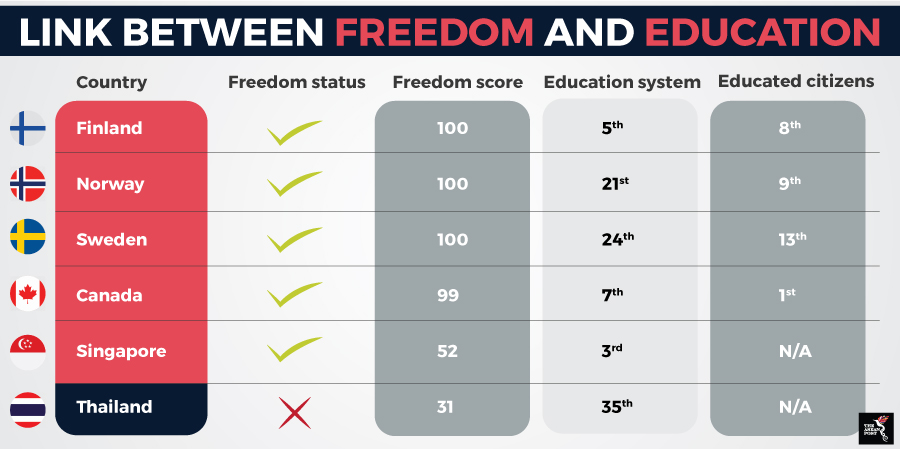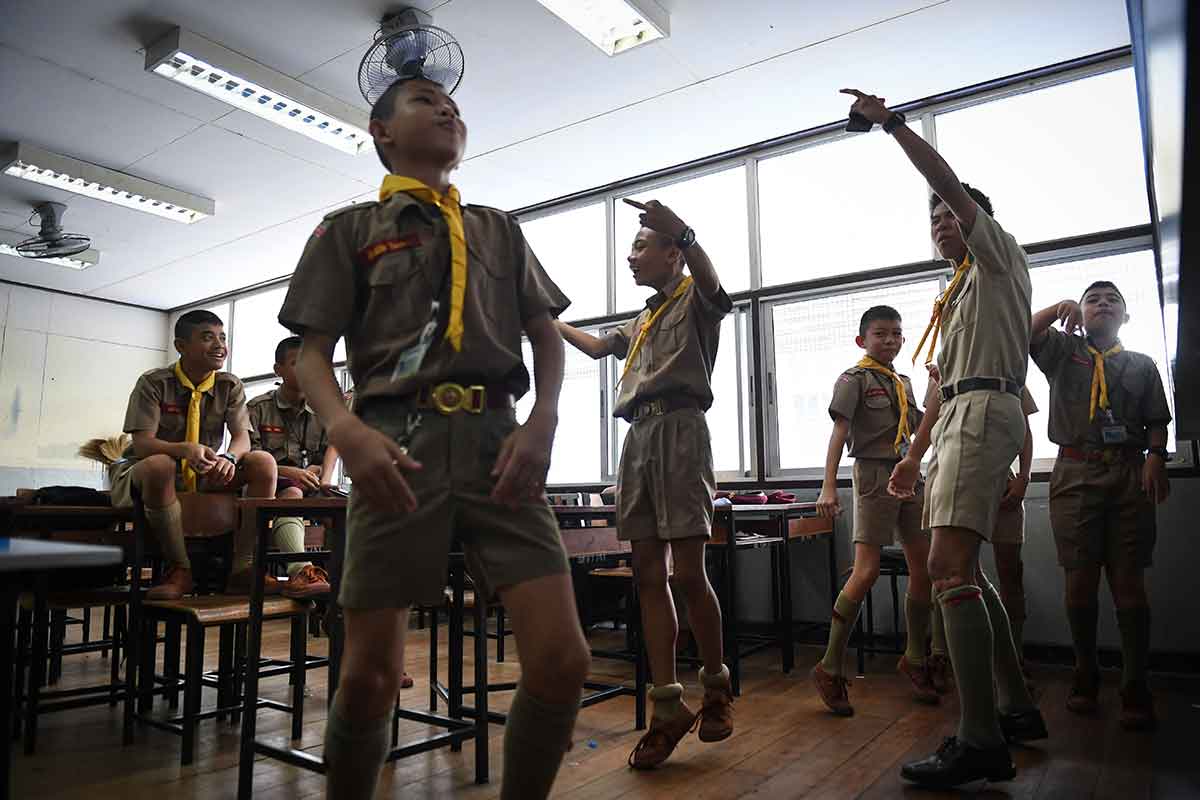Following the now viral anti-junta rap song "What My Country's Got" (Pratheet Go Mee) by hip-hop collective Rap Against Dictatorship (RAD), another rap song had surfaced earlier this month. This latest song is by a 17-year-old rapper Thanayut Na Ayutthaya, better known as Elevenfinger.
Lyrics to Elevenfinger’s song “Equality” shines a light on Thai politics and the country’s poor education system. Some of the lyrics include “A country killing the people... doesn't give a damn about its children” and “You've built the sky trains but education's a dead end” just to name a few.
Most interestingly, a quick internet search on the topic will show photos from international news agency Agence France-Presse (AFP) of young school boys in their government school uniforms being part of what AFP refers to as “a music club session at a government school in Bangkok”. This indicates that there is awareness of Thailand’s political scenario and poor education system, and growing frustration towards it all.
According to the same AFP report, around 30 students, aged between 12 and 15, rehearsed rhymes at a club founded by Elevenfinger. The session began with students taking turns answering a question designed to trigger discussion: "What do you want to see improved in this school?" That’s when the rap battles, challenging the children to answer the question, were formed.
A future of dissent
Only those 18 years of age or older are allowed to vote in Thailand’s elections, making many of the boys as well as Elevenfinger himself ineligible. This does not mean that the culture of dissent – if spread among enough children – will not affect Thailand’s political landscape.
According to the Central Intelligence Agency’s (CIA) World Factbook, Thais aged between 14 to 24 years old make up 13.8 percent of the population. This is a significant number which is made even larger when counting those between the ages of zero to 14 years old (16.7 percent). If the aim is to create a future where Thais are more vocal and aren’t afraid to dissent then there is certainly potential in the numbers.
A student population that dissents about the poor state of an education system may be just the right ticket to fix the country’s ailing education system.
Famous philosophers Immanuel Kant and Plato believed that dissent was important for promoting either the capacity of individuals to examine their lives in relation to others or a collective capacity for public reasoning. This also means that in order to dissent, one needs to think critically.
 Source: Various sources
Source: Various sources
Linking dissent to education
A possible means to determine whether a country fosters or hampers dissent is to look at which countries are most free.
According to Freedom House’s Freedom in the World 2018 report, the top five countries that scored highest were Finland (100), Norway (100), Sweden (100), Canada (99), and the Netherlands (99). In comparison, Thailand only scored 31.
Meanwhile, according to Pearson, the top 40 educational systems in the world sees Finland taking fifth spot, Norway in 21st spot, Sweden in 24th, Canada in seventh, and the Netherlands in eight. Thailand was ranked 35th.
Similarly, in the Organisation for Economic Co-operation and Development (OECD) 2017 list of most educated countries, Canada took first place, Finland was placed eight, Norway ninth, Sweden 13th, and the Netherlands 20th. Thailand was not ranked in the top 41 countries.
While it may be difficult to see a direct link between dissent and good education – several countries that may rank higher in education may not do as well comparatively with other countries when it comes to freedom - the assertions of famous philosophers and even statistics show that it certainly helps.
The latest rap songs coming out of Thailand certainly show that dissent seems – at least on the surface - to be growing in the country. Elevenfinger and likeminded individuals could even foster that culture of dissent among Thailand’s students. While there is much hope that this will relate to a newer crop of students who are able to think more critically, it is equally important that public institutions receive this dissent positively and use it to improve areas which may be lacking – for Thailand, that could also mean its education system as well.
Related articles:
